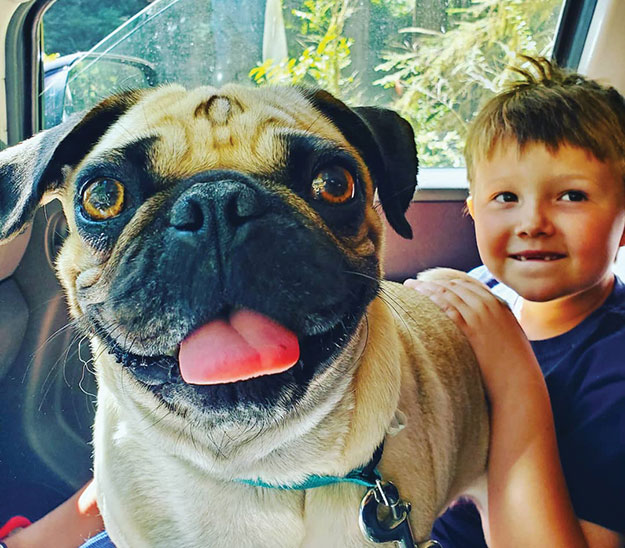Like most families, there comes a time in a military family's life when they decide to adopt a new pet. For the most part, planning for a new pet is the same for everyone. Considering what type of pet is best for their family dynamic, how to care for the pet, and where to get the pet are usually where most people start and finish their research. For military families, there are a few additional things to think about when you are stationed at Joint Base Lewis-McChord (JBLM), but the additional time, effort, and sacrifice are worth it in the end.
Many families know exactly what type of pet they are interested in, whether it be a Siamese cat or American Bulldog, and can usually fulfill that dream with little to no obstacles (unless of course the particular breed is very difficult or expensive to come by). Other families have to consider whether or not that type of pet is allowed in their home if they are renting, and choose something different -- or not at all -- if that breed is restricted. For JBLM residents, those restricted breeds include Pit Bulls (American Staffordshire Bull Terriers or English Staffordshire Bull Terriers), Rottweilers, Doberman Pinchers, Chows, and wolf hybrids.
 Military families, on average, move to a new duty station once every two to four years, and therefore have to find housing accommodations that permit the type of animal they are bringing with them with every move. This can be especially difficult if the pet breeds are considered aggressive, too large, or a liability (such as large terrariums or aquariums.) Moving with a pet becomes even more complicated if the new duty location is across the country or overseas.
Military families, on average, move to a new duty station once every two to four years, and therefore have to find housing accommodations that permit the type of animal they are bringing with them with every move. This can be especially difficult if the pet breeds are considered aggressive, too large, or a liability (such as large terrariums or aquariums.) Moving with a pet becomes even more complicated if the new duty location is across the country or overseas.
Airlines abide by very strict rules when flying pets as cargo, which is the only air travel option for pets over a certain weight. These rules can include flying only during certain times of the year, as temperatures that are too high or too low are dangerous; being seen and cleared to fly by their veterinarian; purchasing an airline-approved carrying container with a proper food and water set-up; and the costs to fly your pet as cargo can be significant. For international travel, all of the above is still true, but more than likely your pet will also experience significant travel times in a carrier due to multiple connections, and the possibility of long-term quarantine depending on the location of your new duty station.
This can be a lot to consider but the benefits of owning a pet, especially for military families, far outweigh the drawbacks. Studies have shown that dogs help to reduce anxiety, stress, depression, and loneliness, all symptoms common for service members and their families, especially during times of training and deployments. Dogs also encourage exercise, and can alert a household of danger and/or an intruder. While there is a lot to do during PCS season for animal owners, there are many options and resources to check into to make pet ownership a possibility.
JBLM on-base housing allows for residents to have pets, but there are breed restrictions and rules that include mandatory microchipping and a pet deposit upon move-in. Pet owners also have the option to buy a home at each duty station, which would allow them no restrictions on pet ownership.
For overseas moves, some families reach out to family members to watch their pets during an overseas tour, or travel via the Patriot Express, a space available Air Mobility Command (AMC) flight which allow pets of PCSing families. Grants, discounts and potential reimbursements are also available through the SPCA, PAWS, Dogs on Deployment, American Airlines, and the DoD.
Owning a pet as a military family certainly adds extra tasks and considerations during moves and deployments, but there is nothing better than curling up with your pup when your soldier is far away. For every family, military or civilian that is considering adopting a new pet, it is important to review every possible scenario you may find yourself in and come up with a solution. Once you have your back-up plans, you can sit back and enjoy your new family member.





Read Comments